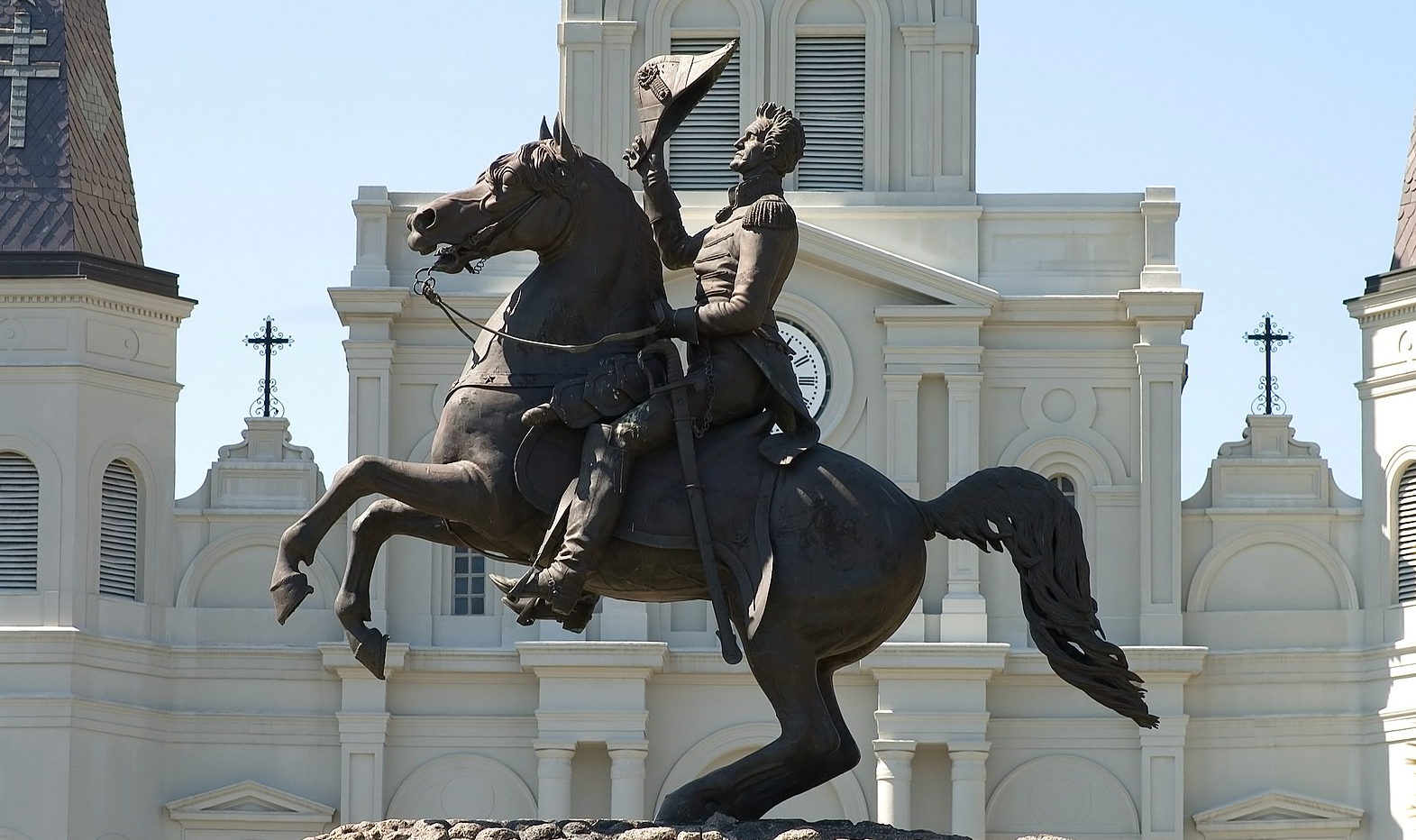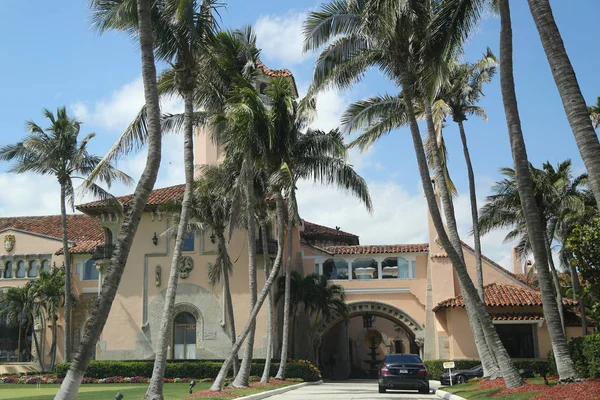Trump Should Revive Jacksonian Military Attitudes
The worship of military technocrats underwrites American failures abroad.

During his first term in office, Donald Trump adorned the Oval Office with a portrait of our seventh president, Andrew Jackson. And for four years, Trump praised the precedent Jackson set as a populist and as a spirited fighter.
Now as he enters his second, non-consecutive term, Trump would behoove himself to adopt another lesson from the Age of Jackson: the tearing down of military idolatry.
It may be a surprise to laymen that General Andrew Jackson, the man who came to national prominence as an Indian fighter, the hero of New Orleans, and the conqueror of Florida was someone skeptical of a military establishment.
But Jackson, as part of the second-generation of American leadership, inherited the Founding Fathers’ fear of the threat that a standing army could pose to republican liberty. Like in so many things, the Founders learned wisdom from the ancient republics.
“The Greeks and Romans had no standing armies, yet they defended themselves. The Greeks by their laws, and the Romans by the spirit of their people, took care to put into the hands of their rulers no such engine of oppression as a standing army,” Thomas Jefferson wrote in 1814. “Their system was to make every man a soldier and oblige him to repair to the standard of his country whenever that was reared. This made them invincible; and the same remedy will make us so.”
Unlike today, in the 18th and 19th centuries professional career soldiers were seen more like mercenaries, primarily interested in a paycheck. It was the civilians who volunteered and organized during moments of crisis who were the real patriots, loftily motivated by high ideals of the responsibility of citizenship. This viewpoint extended to military leadership as well, and the theory of the “amateur general,” men not formally trained in the art of war but whose natural leadership exerted itself to success on the battlefield.
“Service in the army was neither particularly remunerative nor honorable; in a democratic culture that upheld freedom and independence and precious American rights, soldiers were considered overly servile,” writes Amy S. Greenberg, professor of History and Women’s Studies at Penn State University.
“This was especially strong in many quarters due to Jackson’s example and his supporters’ celebration of the ‘common man,’” writes Ethan S. Rafuse, professor of military history at the U.S. Army Command and General Staff College at Fort Leavenworth, Kansas. “Consequently, in much of the country there was a deep skepticism toward standing armies and the officer corps.”
President Jackson expounded during his inaugural address in 1829:
Considering standing armies as dangerous to free governments in time of peace, I shall not seek to enlarge our present establishment… the bulwark of our defense is the national militia, which in the present state of our intelligence and population must render us invincible… so long as it [our government] is worth defending a patriotic militia will cover it with an impenetrable aegis. Partial injuries and occasional mortifications we may be subjected to, but a million of armed freemen, possessed of the means of war, can never be conquered by a foreign foe. To any just system, therefore, calculated to strengthen this natural safeguard of the country I shall cheerfully lend all the aid in my power.
Today, the equivalent to this policy would be empowerment of the National Guard, the backbone of the U.S. Armed Forces; nearly half of the American forces deployed during the Global War on Terror have been National Guardsmen.
Constant adulation of the military and its service members has become the political norm in the 21st-century United States. But Donald Trump, more so than any other recent commander in chief, has been willing to criticize the military establishment. “The top people in the Pentagon probably aren’t [in love with me] because they want to do nothing but fight wars so that all of those wonderful companies that make the bombs and make the planes and make everything else stay happy,” he said in 2020 about the military-industrial complex.
His new, second term appointments reflect that sentiment, now turbocharged. “First of all you’ve got to fire the chairman of the joint chiefs, obviously you’re going to bring in a new secretary of defense, but any general that was involved—general, admiral, whatever that was involved in any of the DEI, woke shit has got to go. Either you’re in for warfighting and that’s it, that’s the only litmus test we care about,” Pete Hegseth told Shawn Ryan in November 2020.
Hegseth served as a major in the Minnesota Army National Guard and deployed to both Iraq and Afghanistan, and his disgust at the officers who contributed to losing those wars is palpable..
“You’ve got top-down, political generals who’ve gained rank by playing by all the wrong rules, that cater to the ideologues in Washington, DC. And so they’ll do any social justice, gender, climate, extremism crap because it gets them checked to the next level and gets them closer to the political appointees, who don’t know anything about the military really other than they want a new first-here and new first-there, and can we get the first trans this, just nonsense,” Hegseth continued, just days before he was selected by Trump as his next Secretary of Defense.
This sort of criticism of the high command, its insularity, and its disconnect from the lower ranks falls directly within the Jacksonian tradition. “The regular army, West Point, and its officer corps frequently found themselves under attack and accused of being—not completely without justification—elitist institutions that drew too heavily on European models and harbored ethos and attitudes that were not in line with the values of a democratic republic,” writes Rafuse.
The Jacksonians’ exaltation of the citizen-soldier model did run aground during the Mexican-American War. Enthused with a democratic spirit, more than twice as many volunteers served in the war as army regulars. But the volunteers were more likely to break under fire than trained soldiers, and more likely to break military discipline and abuse the locals. “Our militia & volunteers, if a tenth of what is said to be true, have committed atrocities—horrors—in Mexico, sufficient to make Heaven weep, & every American, of Christian morals, blush for his country,” General Winfield Scott complained in a letter to the secretary of war.
Scott spent the whole of his more than 50 years in uniform pushing for the professionalization of the U.S. military and the squashing of the outdated concept of the “amateur general.” The Civil War would prove to be a forge large and hot enough to hammer out our modern military.
But today, honest observers must reckon with more than two decades of military campaigns in countries like Iraq and Afghanistan where political objectives were not obtained and failed counterinsurgency tactics were rebranded and resold, but with still no return on investment.
Hegseth’s criticism of the officer class as a hierarchy of political appointments, focused on domestic agendas and devoid of merit is hard to deny. There’s a reason why so many intelligent, capable, and independently minded soldiers have their careers capped at the rank of colonel, never blessed by the United States Senate with stars on their shoulders.
The necessity of a capable and well-trained military means recognizing the excesses of the Jacksonians’ criticisms of a standing army. But recent foreign policy setbacks also require an awareness that generals like David Petraeus and Mark Milley do not reach the caliber of Winfield Scott, and the present system of promotion seems more concerned with affirming politics than selecting talent. We’ll have to wait until January 20 to find out which commander-in-chief’s portrait will replace Joe Biden’s selection of Franklin Delano Roosevelt as the focal point in the Oval Office. (During the transition, Trump has been talking up William McKinley because of his protectionism, and his bullying towards Panama and Greenland are even reminiscent of McKinley’s imperialism.) But no matter who hangs on the wall, the removal of the irreproachable aura from the officer class and an appropriate kicking down to size in open public debate would be healthy for our republic and a return to the celebrated political tradition cultivated by Andrew Jackson.
The post Trump Should Revive Jacksonian Military Attitudes appeared first on The American Conservative.

